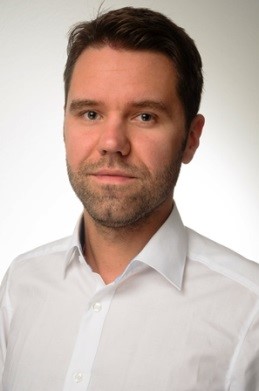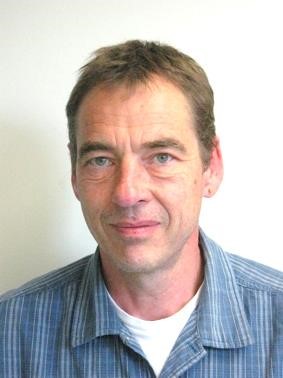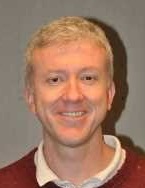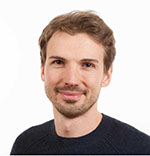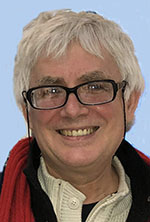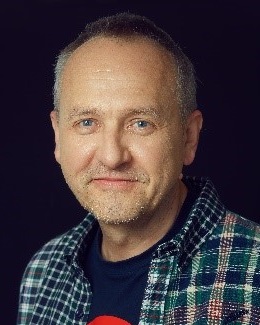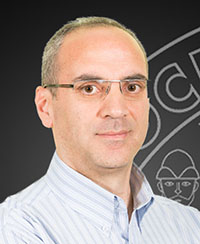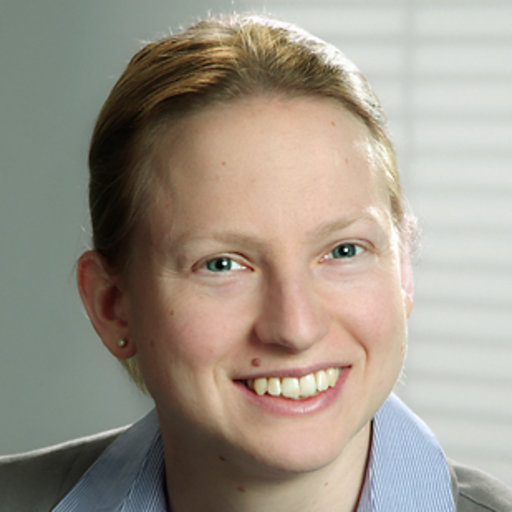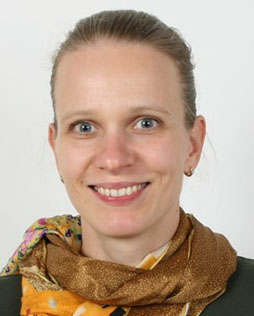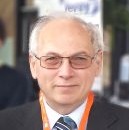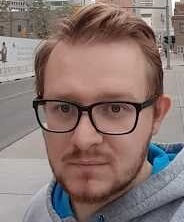Kemal Aganović is head of a research platform advanced technologies at the German Institute of Food Technologies – DIL e.V. in Quakenbrück (Germany). Kemal has a degree in Food Science and Technology from University of Natural Resources and Life Science in Vienna (Austria), and PhD in Bioscience Engineering from KU Leuven (Belgium) as a Marie Curie ITN fellow on FP7 “HST FoodTrain” European project. The focus of the PhD was in new preservation technologies and chemometrics. Since 2018 he is an associate lecturer at the University of applied science Osnabrück in courses Food Process Engineering, Advanced Food Processing Techniquess and scientific coordinator of the International Summer Lab – Special Food Technologies, organised by the university and DIL. The main focus of Kemal’s research is on impact of emerging technologies on food quality, their scale-up possibilities and new industrial applications, sustainability along with increasing process efficiency and process optimisation. He is an author of 11 scientific publications, 2 patents, 4 book chapters and has received 3 awards.
Wolfgang Frey received the Phd degree in high voltage technology and plasma physics from the University of Karlsruhe, Germany. He was an Assistant Professor with the High Voltage Institute at the University of Karlsruhe, focusing on on new pulsed power concepts, high voltage test engineering and switching. In 1997, he joined the Pulsed Power Group at KIT/IHM. He started with pulsed electron beam surface coating, worked on electrodynamic fragmentation technology and turned to pulsed electric field effects on biological material in 2001. He focussed at applied research on pulsed electric field treatment for bacterial decontamination and cell component extraction and on basic research for ns-timescale membrane-voltage-dynamics measurement. Since 2006, he has been Team Leader in Bioelectrics at KIT/IHM. His current research interests include PEF processing of microalgae for efficient extraction of multipe cell components, stress responses in microalgae due to nsPEF exposure and bacterial decontamination in industrial water streams.
Federico Gómez Galindo was born in Quito, Ecuador, in 1970. He received a Ph.D. in Food Engineering from Lund University in 2004. He is currently Associate Professor and Senior Lecturer at the Department of Food Technology, Engineering and Nutrition of Lund University in Sweden. His research interests include emerging technologies (pulsed electric fields, vacuum impregnation) for the processing of fruit and vegetables, with strong focus on metabolic consequences of processing and plant stress physiology. Federico Gómez Galindo is the author of 42 articles in SCI-ranked journals cited over 750 times excluding self-citations. His h-index is 17. In 2015 he received the distinction of “Excellent Teaching Practitioner” from the Pedagogical Academy of the Faculty of Engineering at Lund University.
Henry Jäger is Professor of Food Technology at the University of Natural Resources and Life Sciences (BOKU) in Vienna. He moved back to academia from an industry position in Research and Development at Nestlé where he worked on process development in the field of preservation technologies. Before, he was researcher in the Department of Food Biotechnology and Food Process Engineering at Technische Universität Berlin where he also obtained his PhD and an Engineering Degree (Dipl.-Ing.) in Food Technology. His research field covers the application of alternative food processing technologies for gentle food preservation as well as the targeted modification of food structures.
Matej Kranjc received his Ph.D. degree in electrical engineering from the University of Ljubljana, Slovenia, in 2012. His main research interests are in the field of electroporation, especially in determination of electric field distribution and electrical conductivity in tissues using magnetic resonance techniques and in development of new technologies for non-invasive technique for cell membrane permeabilization using pulsed electromagnetic fields. In addition to published papers in prominent scientific journals, he has presented his results in invited lectures at international meetings.
Nikolai Lebovka obtained his PhD degree in molecular physics at Taras Shevchenko National University (1986) and Habil. Dr. Science in Physics of Colloids at the Institute of Biocolloid Chemistry (1995). Over the last 20 years Lebovka is a guest professor at the Université de Technologie de Compiègne, France. His research interests encompass the electric field effects in bio and food materials (electroporation and PEF assisted processing). The other interests include studies of colloidal suspensions, biocolloids, nanocomposites, statistical and computation physics. He has been involved in a number of international and national funded projects in these topics.
James Lyng‘s research focuses on the use of emerging thermal (microwave, radio frequency wave and ohmic heating) and ‘non-thermal’ technologies (ultrasound, high voltage pulsed electrical fields and light (Ultra Violet Light, Blue Light and High Intensity Pulsed Light) in the processing of foods with particular reference to the assessment of these technologies for accelerating reactions and/or preservation and their impact on product quality/nutritional value. In addition, and more recently, his research is also focusing on the evaluation of these technologies for extraction of bioactive compounds from foods. His success in securing research funding has established a critical mass of equipment/expertise in innovative food processing technologies at UCD. He has published a significant number of scientific publications (182) in the processing area (h-index 45, Citations 5387, (source Google Scholar)) and has also co-edited 2 books and have 2 patents in the processing area.
Damijan Miklavčič received a Ph.D. degree in electrical engineering from the University of Ljubljana. He is currently a Professor at the Faculty of Electrical Engineering, University of Ljubljana. His research interests include electroporation-based gene transfer and drug delivery, irreversible electroporation as tissue ablation method, development of electronic hardware and numerical modeling of electroporation. During the last few years his interests overlap also with the use of electroporation in food science and biotechnology. He is the past president of the International Society for Electroporation Based Technologies and Treatments (www.electroporation.net) and is promoting the cross-sectional research and application of the PEF technology.
Gianpiero Pataro received his PhD in 2004 at the University of Salerno (Italy) where he is currently Assistant Professor in Chemical Plant Design at the Department of Industrial Engineering. His research field covers the application of emerging thermal (ohmic heating) and Nonthermal technologies (pulsed electric fields, high intensity pulsed light, continuous wave UV light, high pressure carbon dioxide) in food and biotechnological processes, with three main objectives: improve safety, quality and functional properties of processed foods, induce targeted modification in food structures, and improve the mass transfer process of valuable compounds from biological matrices (food and food by-products, microalgal cell suspensions).
Javier Raso received his PhD in 1995 at the University of Zaragoza (Spain) where he is currently professor of Food Technology and former Director of the Pilot Plant of Food Science and Technology. He has been visiting researcher of the Microbiology Department at Unilever Research in Bedford (UK), of the Department of Food Biotechnology and Food Process Engineering at Technical University of Berlin (Germany) and of the Biological Systems Engineering Department at Washington State University (USA). His areas of research are in the field of food preservation and processing by thermal and non-thermal technologies such as ultrasound, high hydrostatic pressure, pulsed electric fields and combined processing. Research interest is focused in critical factors affecting efficacy of technologies, kinetics and mathematical modeling, process optimization and mechanisms of action. He has been involved in a number of EU and national funded projects in these topics and he is the author of more than 120 peer-review. He is co-author of the book “Pulsed Electric Fields Technology for the Food Industry” and he is serving in the editorial board of the “Innovative Food Science and Emerging Technologies” journal. He was Vice-Chair of the COST Action TD1104 “European network for development of electroporation-based technologies and treatments (EP4Bio2Med) and coordinator of the project FieldFOOD of the Horizon2020 Framework Program of the European Union.
Cornelia Rauh is Head of the Institute of Food Biotechnology and Food Process Engineering at the Technische Universität Berlin (Germany) since March 2013. Before, she was group leader of the research groups “Thermofluiddynamics of biotechnological processes” and “Computational Fluid Dynamics” at the Institute of Fluid Mechanics at the Friedrich-Alexander-University of Erlangen-Nuremberg (Germany). There, she received her PhD in 2008 and her Habilitation in 2013. Until 2005, she studied Technology and Biotechnology of Foods at the Technical University of Munich (Germany). Her research focus lies in the interdisciplinary field of numerical and experimental investigation of biotic and abiotic systems capable of flowing. This includes food preservation by high pressure processing or pulsed electric fields processing, generation and stability of food foam systems, extrusion processes, fermentation processes, analysis and design of (bio)chemical reactors up to bionic applications at a broad range of time and length scales. She has received several awards for her research up to now. Cornelia Rauh is involved in several national and international research projects. Up to now, she has published more than 80 peer reviewed articles, 11 book chapters and more than 210 conference contributions (including 25 invited lectures). She is also serving as reviewer for several peer reviewed journals, e.g. Innovative Food Science and Emerging Technologies, Environmental Science & Technology, Fuel, Microfluidics and Nanofluidics, Ultrasonics.
Bo-Anne Rohlik is an assistant professor at the University of Chemistry and Technology Prague, Czech Republic, and received her Ph.D. in Food Technology from the same university in 2012. She re-joined the University after completing her 3 year post-doc at the Commonwealth Scientific and Industrial Research Organisation (CSIRO), Australia, where she studied the muscle structure and water retention in fresh and cooked meat products, and optimised meat quality and functionality of fresh meat through novel processing interventions, especially PEF technology. Her main research focuses on the application of alternative food processing technologies to improve the quality and functionality traits of foods.
Justin Teissié was born 24 March 1947 in Poitiers, France. Got a degree in Physics at the Ecole superieure de Physique et de Chimie Industrielles de Paris (ESPCI) in 1970. Got a PhD in Macromolecular Chemistry on a project on fluorescence detection of action potential under the supervision of Prof. Monnerie (ESPCI) and Changeux (Institut Pasteur) in 1973. Hired by the CNRS in 1973 Got a DSC in Biophysics on a project on fluorescence characterisation of Langmuir Blodgett films in Toulouse in 1979 (Prof Baudras). Was a Post Doc at the Medical School of the John Hopkins University in Baltimore in 1979-81 (Prof. Tsong). Presently Director of research at CNRS, emeritus. Author of more than 250 papers. His research was focused on the biophysics of biological membranes, mainly on their electrical aspects. He was involved in the development of electropermeabilization and related consequences since 1979. His research was on the basic aspects (electropermeabilization is more than punching holes in a lipid bilayer) by working on systems with increasing complexity (lipid models, cells and tissues), on the design of specific experimental tools for a better understanding of the processes (sophisticated electropulsators, imaging devices) and on the applications in Health (electrochemotherapy, gene therapy) and Biotechnology (GMO, extraction, eradication, flow process).
Eugène Vorobiev is a full Professor of the Chemical Engineering Department and a head of the laboratory for Agro-Industrial Technologies at the Université de Technologie de Compiègne (UTC), France. He received his PhD degree in Food Engineering (1980, Ukraine) and his Dr Habil. in Chemical Engineering (1997, France). His main research interests are focused on mass transfer phenomena, theory and practice of solid/liquid separation, and innovative food technologies (especially electrotechnologies). He has published more than 300 peer-reviewed papers, edited several books, and is the author of 19 patents. He is a member of editorial board in several journals (“Separation and Purification Technology”, “Innovative Food Science and Emerging Technologies”, “Food Engineering Reviews”, “Journal of Agricultural and Food Chemistry”). He is an ISEBTT Council member and a president of French SF2P society. He is a laureate of the price for the innovative technique for the environment (Ademe, 2008, 2014).
Artur Wiktor is a graduate of Warsaw University of Life Sciences (WULS-SGGW) and Ghent University. Currently working at WULS-SGGW as an Assistant Professor. He did an internship at Technical University of Berlin and he was a Visiting Assistant Professor at University of British Columbia (Canada). The leader or research team which works on nonthermal technologies utilization in food industry, especially pulsed electric field in drying applications. The author of around 50 publications and book chapters.
Julian Witt has studied Food Production Engineering and Business at the University of Applied Science Osnabrück and received his Master of Science in 2014. He practically started working with Pulsed Electric Fields during his semester abroad at the Cape Peninsula University of Technology (CPUT) South Africa in a joint project of CPUT, Hochschule Osnabrück and Deutsches Institut für Lebensmitteltechnik (DIL). He has then joined the R&D team of DIL’s spin-off Elea and has become one of their PEF experts with a focus on liquid applications. Elea is the world’s leading provider for Pulsed Electric Fields Systems for various applications in the food and biotechnology sectors. With a strong focus on R&D as one of its core departments, Elea develops and implements PEF systems worldwide.

